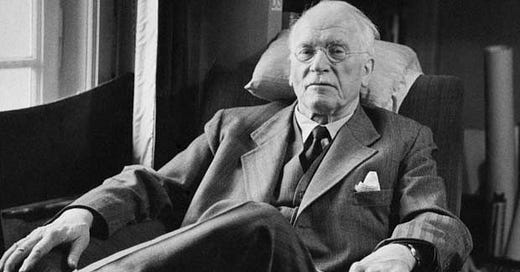Carl Jung on the importance of taking a break
Welcome to a special Labor Day issue of Subtle Maneuvers, which I’m going to keep brief in honor of a holiday that was founded to celebrate the American labor movement, whose achievements include the eight-hour workday (RIP?) and protections against employers forcing employees to do unpaid work.
But since I know some of us have trouble limiting our own work hours and taking a proper day off, here’s a little piece of wisdom from Carl Jung that I ran across while researching Daily Rituals:
“I’ve realized that somebody who’s tired and needs a rest, and goes on working all the same is a fool.”
Don’t be that fool! And if you do have the day off, I hope it’s a restorative one. I’ll be back with more tales of monomaniacal workaholic artists and thinkers* next Monday.
*OK, I can’t resist including just a little more about Jung’s work (and rest) habits. According to his longtime associate Barbara Hannah, Jung “had the largest capacity for work I have ever seen in anyone”—but he also “always took longer holidays than most analysts and I can testify that these were an advantage to his analysands, rather than the reverse.”
Another of Jung’s colleagues looked at Jung’s schedule for one year and realized that he spent 26 weeks—half the year!—at his retreat at Bollingen, Switzerland, where he built a primitive two-story stone tower on the shore of Lake Zürich. His time there was not only for relaxation, however; Jung also did a lot of writing at Bollingen, and he kept up such a large correspondence that it required the employment of a part-time secretary—who said, “Jung’s correspondence was terribly extensive and therefore often the cause of complaints and grumblings.”




